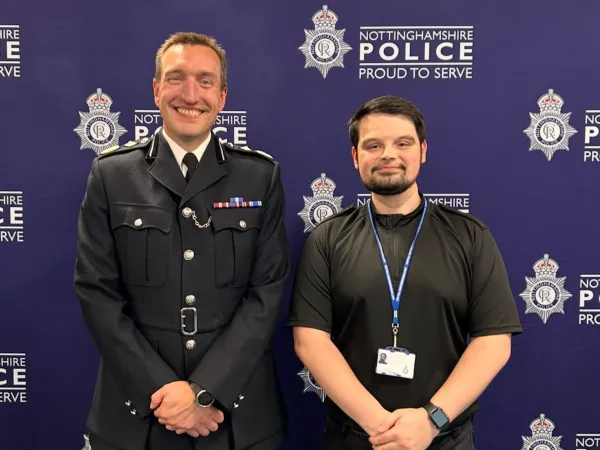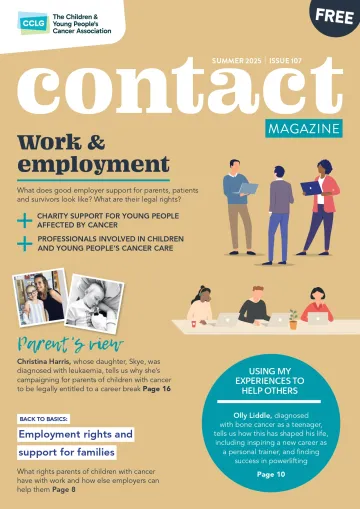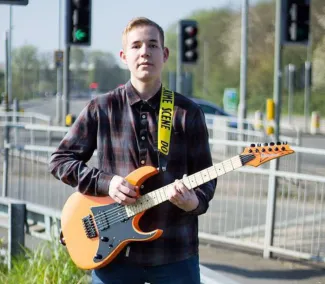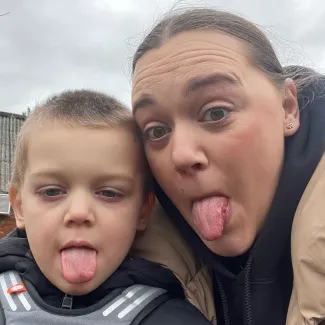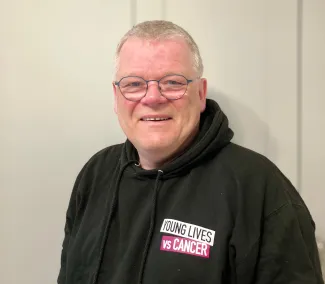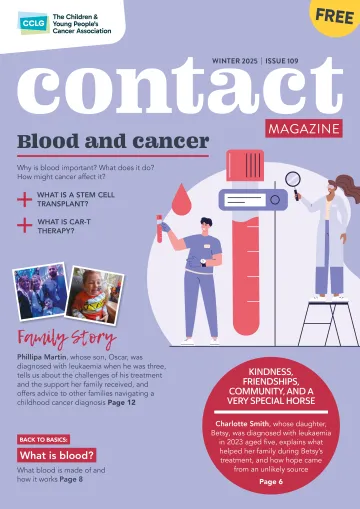I was part-way through my GCSE year and preparing for my exams when I was diagnosed with olfactory neuroblastoma. My symptoms initially started off as headaches and nosebleeds which slowly started to get worse. Then, my lymph nodes began to swell up. I’d previously been to the GP, but as my mum became increasingly concerned, she took me to A&E where I told them about my previous symptoms and that I could no longer smell, too. Doctors then used a small camera to look inside my nose where they saw a tumour.
When I was diagnosed, it was obviously a big shock, but I found what worked best for me was to just attempt to focus on something else. For me, that was putting my work into my exams and school to try and achieve good grades, even though I was ill.
I didn’t suffer from any major side effects from my initial treatment, so I tried to push myself to live as normal a life as possible, which I think is important to do if you’re able to. I tried to not let my illness hold me back from anything I wanted to do, which is something I’ve carried with me in life after treatment. For me, this meant going to school as much as I could, continuing with cadets, and asking my doctor increasingly difficult questions about what I was and wasn't allowed to do.
For a while, I also received treatment in America. This started as a great experience, but this time, I started to suffer side effects, such as not being able to eat. However, while in America I tried to keep myself active as much as possible by visiting some of the attractions around where I was being treated and spending time with my family.
Building for the future
My treatment lasted around a year. During that time, I managed to complete my GSCEs and secure a spot at sixth form, which was waiting for me when I returned. After finishing sixth form I chose to do a two-year public services course at college. I learnt about the workings of the public services, and, importantly, also about keeping myself fit and healthy.
Throughout this course we did a lot of fitness training which really helped me getting back to full fitness and being prepared for later employment. I finished this course with a Distinction * Distinction * Distinction and went on to Nottingham Trent University, where I studied Professional Policing and achieved upper second-class honours.
I don't find that my illness has ever affected what I can do post-treatment, nor my job, and I’ve always maintained that it doesn't define who I am. Instead, it's the choices I make that do.
Joining the police
After finishing university, I applied to join Nottinghamshire Police. The most complicated part of this process for me was the medical. This wasn’t because there was anything that would stop me from passing. It was simply because when having my medical history looked at, the person reviewing it wasn't expecting anything complicated and didn't know what to do with the situation when presented with it.
I have had this happen a few times where people see a long medical history and become worried, which can be frustrating. I always try to explain my history as best as I can and get a doctor's letter to support the fact that I’m fit and healthy for work.
Fortunately, all worked out for me, and I was accepted into Nottinghamshire Police as a police constable. My work ranges from being at the office doing paperwork to driving with the blue lights on to 999 emergencies.
I don't find that my illness has ever affected what I can do post-treatment, nor my job, and I’ve always maintained that it doesn't define who I am. Instead, it's the choices I make that do.
From Contact magazine issue 107 | Summer 2025

